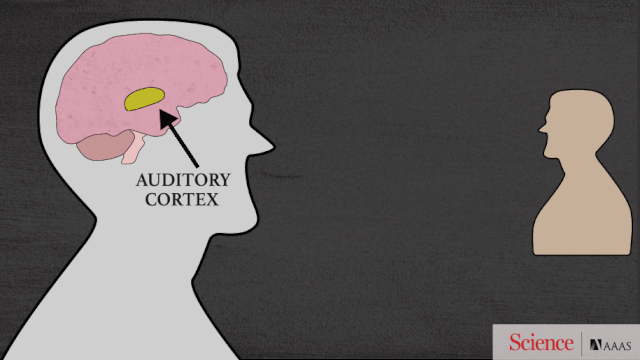 Researchers identified neurons that help discern changes in relative pitch.CARLA SCHAFFER/AAASResearchers at the University of California, San Francisco, have identified specialized brain cells that detect changes in the pitch of speech, they reported last week (August 24) in Science. Such changes are crucial to understanding emphasis in spoken speech, determining question from statement, and distinguishing between different words in tonal languages such as Chinese.
Researchers identified neurons that help discern changes in relative pitch.CARLA SCHAFFER/AAASResearchers at the University of California, San Francisco, have identified specialized brain cells that detect changes in the pitch of speech, they reported last week (August 24) in Science. Such changes are crucial to understanding emphasis in spoken speech, determining question from statement, and distinguishing between different words in tonal languages such as Chinese.
As coauthor and neurosurgeon Edward Chang explains to Wired, “These differences are all really important, because they change the meaning of the words without changing the words themselves.”
For their study, Chang and colleagues recruited 10 people with epilepsy who already have electrodes implanted in their brains to detect where seizures originate. The researchers used the electrodes to track brain activity as the subjects listened to sentences read by three speakers, with different words emphasized. They found an area of the brain in the auditory cortex within the superior temporal gyrus that responds just to changes in the pitch of speech, independently of the consonant and vowel sounds it contains.
“Processing sound is one of the most complex jobs that we ask our brain to ...





















